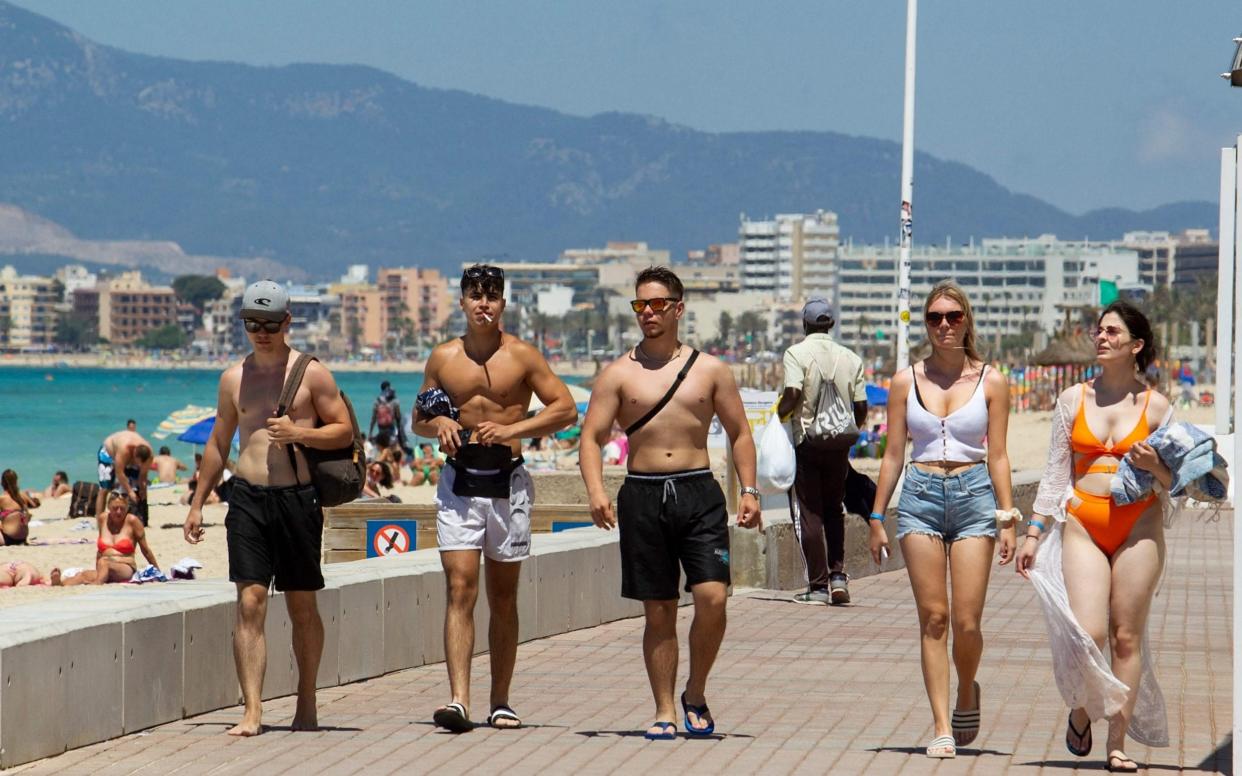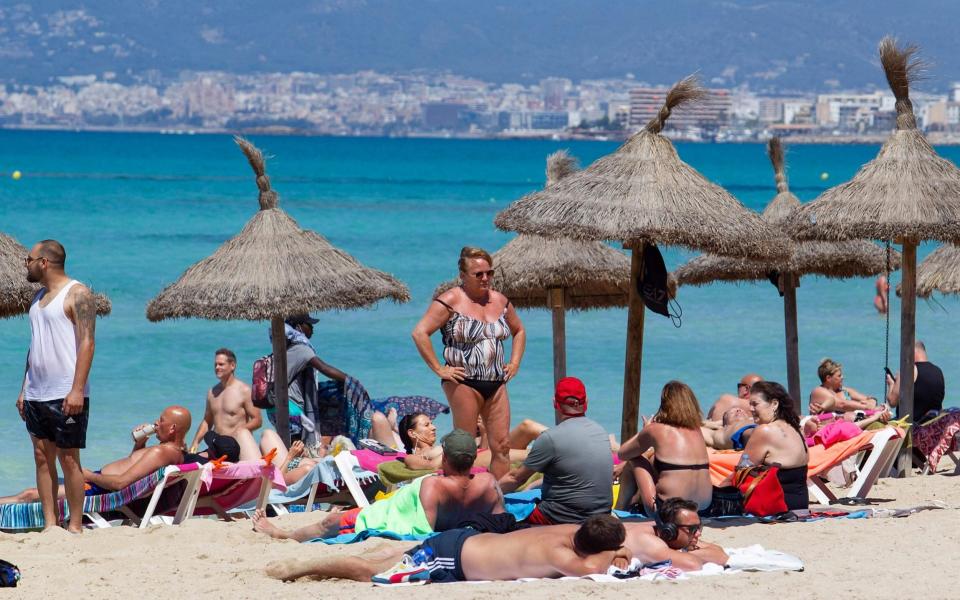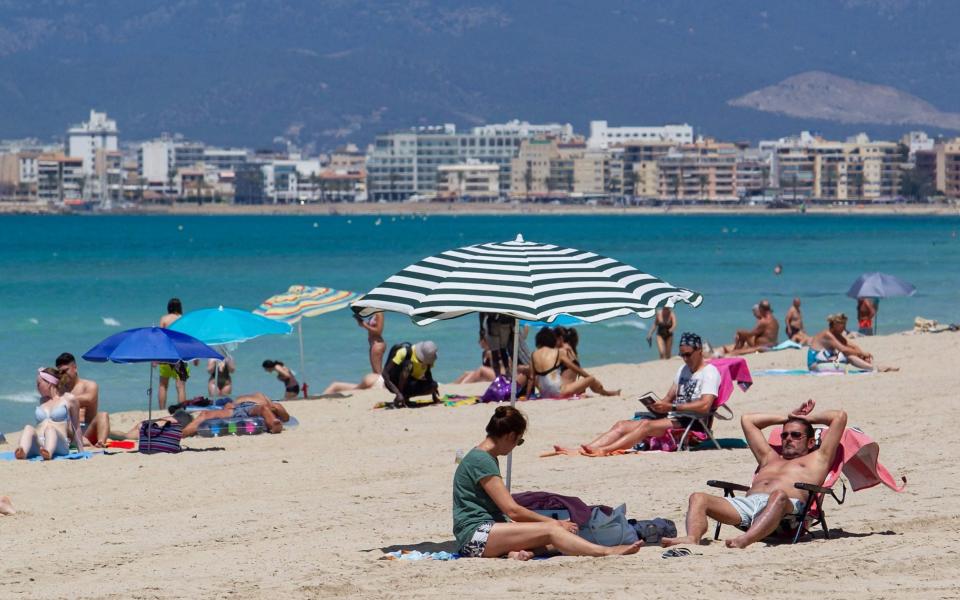Spain opens borders to all vaccinated tourists

Spain is opening to fully vaccinated travellers from around the world in an attempt to kick start its summer tourism season.
Carolina Darias, Spain’s minister of health, said the country was “a safe destination and we are in a position to soon regain our world tourism leadership”, adding that the easing of border controls “[places] us closer to returning to normal every day”.
Spain has a seven-day rolling case rate of 62 cases per 100,000, compared to the UK’s 49.
British holidaymakers have been free to travel to Spain since the end of May, without the need to test or show proof of vaccination.
However, the UK Foreign Office responded to Spain’s global reopening by warning it had not changed its guidance on travel to the country.
“We continue to advise against all but essential travel to Spain, including the Balearic Islands, but excluding the Canary Islands,” it said.
Spain is on the UK’s amber list, which means that anyone returning to the UK must quarantine for up to 10 days.
Matthew Eisenberg, a 22-year-old student, stepped out of Madrid airport's arrivals lounge in excitement, ready to enjoy the Spanish capital along with two American friends.
"We came to Spain the first day we could, because we are very excited to travel here," Mr Eisenberg said, showing the certificate for the two Moderna jabs he received in February and March.
The official certificates need to show that visitors were vaccinated at least 14 days before the trip or that they overcame a Covid-19 infection in the past six months, according to a Spanish government order published on Saturday.
The vaccines accepted are those approved by Europe's drug regulator – Pfizer-BioNTech, Moderna, AstraZeneca and Johnson & Johnson – as well as two Chinese vaccines authorized by the World Health Organization – Sinopharm and Sinovac.
The same documents will be valid for visitors from the European Union until the bloc gets together its "Digital Green Certificate", which some have dubbed a vaccine passport for travel.

Non-vaccinated travelers from the EU's 27 countries can also enter Spain now with the negative results of recent antigen tests, which are cheaper and faster than PCR tests for coronavirus.
But Spain is still banning non-essential travelers from Brazil, India and South Africa, where virus variants have been been a major source of concern.
The Spanish government has set a goal of receiving between 14.5 million to 15.5 million visitors between July and September. That is about 40 per cent of the tourists in the same period of 2019 but twice as many as last summer, when only EU visitors could enter Spain.
Tourism is a major industry that in 2019 accounted for over 12 per cent of Spain's GDP.
In a setback, many of the British tourists who love Southern Europe's beaches and are the top spenders among foreign visitors in Spain, aren't expected in mass yet because they are required to quarantine by British authorities on their return to the UK
Randolph Sweeting, from Manchester, said that despite the mandatory isolation, his holiday in Mallorca, one of the Mediterranean islands favored by many European tourists, was worth the mandatory self-isolation.
"I was here twice last year and when I went home I had to quarantine on my own for two weeks. So it's not a problem for me, I've done it before," the 68-year-old said at Palma de Mallorca airport.

Belen Sanmartin, director of the Melia Calvia Beach Hotel in Mallorca, said that the UK Government's decision to keep Spain in its list of high-risk territories was hard to understand in the Balearic Islands, where the infection rate was lower than in Britain.
"It has been a big disappointment because we were ready to receive visitors from the British market, we had done our homework," Ms Sanmartin said, adding that bookings in her hotel were slowly picking up mostly because of Spanish mainlanders, and German and French tourists.
In another move to boost tourism, Spanish ports opened to cruise ships on Monday, nearly 15 months after they were banned as the first coronavirus outbreaks were detected.
After peaking in late January at nearly 900 new cases per 100,000 residents in 14-days, the coronavirus contagion indicator in Spain has dropped to 117 per 100,000. Still, its descent has stalled in the past days as new infections are spreading among unvaccinated groups.
Spain has counted over 80,000 Covid-19 deaths in the pandemic.

